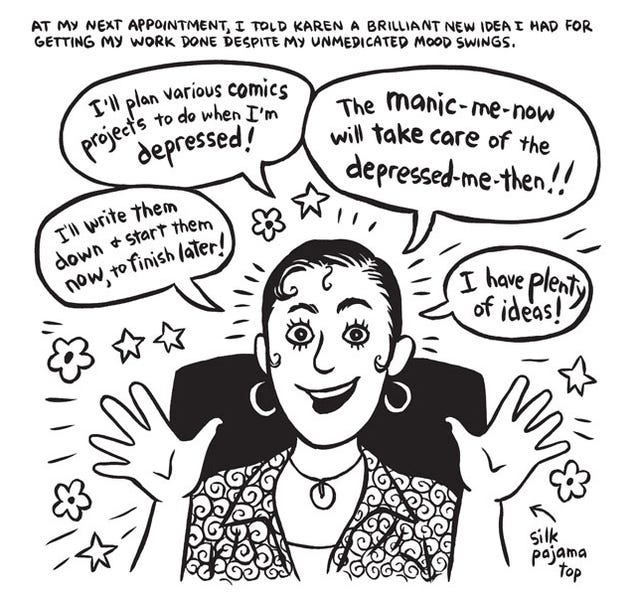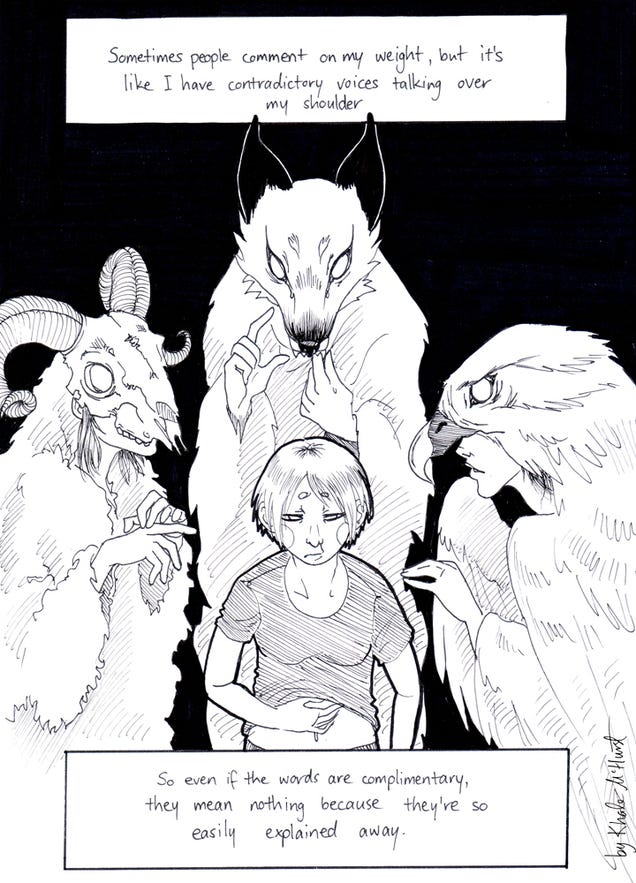Top 10 Mental Illnesses And Their Myths
By Tessa Yelton
We’ve had several fascinating lists about bizarre mental disorders on this site, but no lists have been posted of mental illness myths. Mental illnesses, disorders and differences tend to be very misunderstood by the general public. This is a list of mental illnesses and a widely believed myth or two about each one. I’m sure there are other mental disorders with myths so widespread that I believe in them, too. Of course, you can tell me about those in the comments.
10
Antisocial Personality Disorder
The Myth: Somebody who avoids social interaction is “antisocial”.
This is mostly a semantic error, which is why I put it in tenth place. Many people refer to someone who is reluctant to participate in social situations as “antisocial”. In fact, these people are often pro-social, even unusually so.
Antisocial Personality Disorder is diagnosed in adults who consistently ignore the rights of others by behaving violently, lying, stealing, or generally acting recklessly with no concern for the safety of themselves or others. They are often extroverted and very much the opposite of the type of people who are so often called “antisocial”, who usually care very much about other people’s feelings. These people are usually just shy or have some form of autism, depression, social anxiety disorder, or avoidant personality disorder (AvPD). AvPD, which is diagnosed in people who avoid social interaction because of an intense fear of being rejected, is probably part of the reason for this confusion. The two personality disorders, after all, have pretty similar names, even if they are entirely different things.
9
Multiple Personality Disorder
The Myth: People with Dissociative Identity Disorder radically change their behavior and lose their memory of what has just been happening when they switch personalities.
Some people would say that DID itself is the myth, since it’s, suspiciously, much more commonly diagnosed in North America than anywhere else, but let’s assume for today that it does exist.
People with DID have anywhere from two to over a hundred different personalities that alternately take over their bodies. These alternate personalities (“alters”) usually, but not always, form due to childhood trauma. The alters don’t always cause huge, noticeable changes in appearance or behavior, so observers might not even notice their existence. Many people with DID (“multiples”) realize that various alters are present and know who those people are, even before therapy, which wouldn’t work very well if they had no memory of switching. It’s possible that one personality has no knowledge of what happened while one of their alters was in charge, causing a sense of amnesia, but they might be entirely aware of what is happening and just not actively involved. The group of alters can usually communicate to some degree, and might even work together to hide the fact that they are multiple. Some multiples prefer not to have therapy to choose one personality and stop switching, because they are perfectly fine living as a team.
8
Dyslexia
The Myth: All people with dyslexia are unable to read because they see letters in the wrong order.
This is actually two myths in one, but still only two of many myths about dyslexia. The first is that dyslexic people can’t read. Actually, most do learn to read, but if they don’t get appropriate help, they often learn slowly and stay well below their grade level in speed and comprehension. But even that’s not always true: many dyslexic children figure out how to cover up their difficulty reading until third or fourth grade or even longer. And if they are taught by someone who understands dyslexia, they can learn to read perfectly well.
The other half of this myth is that the problem dyslexics have with reading is because they see words backwards or out of order. This can seem to be the case because, in their confusion while they try to figure out a word, they mix up letters or sounds, and some dyslexic people confuse left and right or have a lot of trouble spelling. However, this is not the cause of their problem. Dyslexia is much more to do with a unique way of thinking than a problem with processing visual information...
Get the full list at She Know Everything.
http://sheknoweverything.com/top-10-mental-illnesses-and-their-myths/













